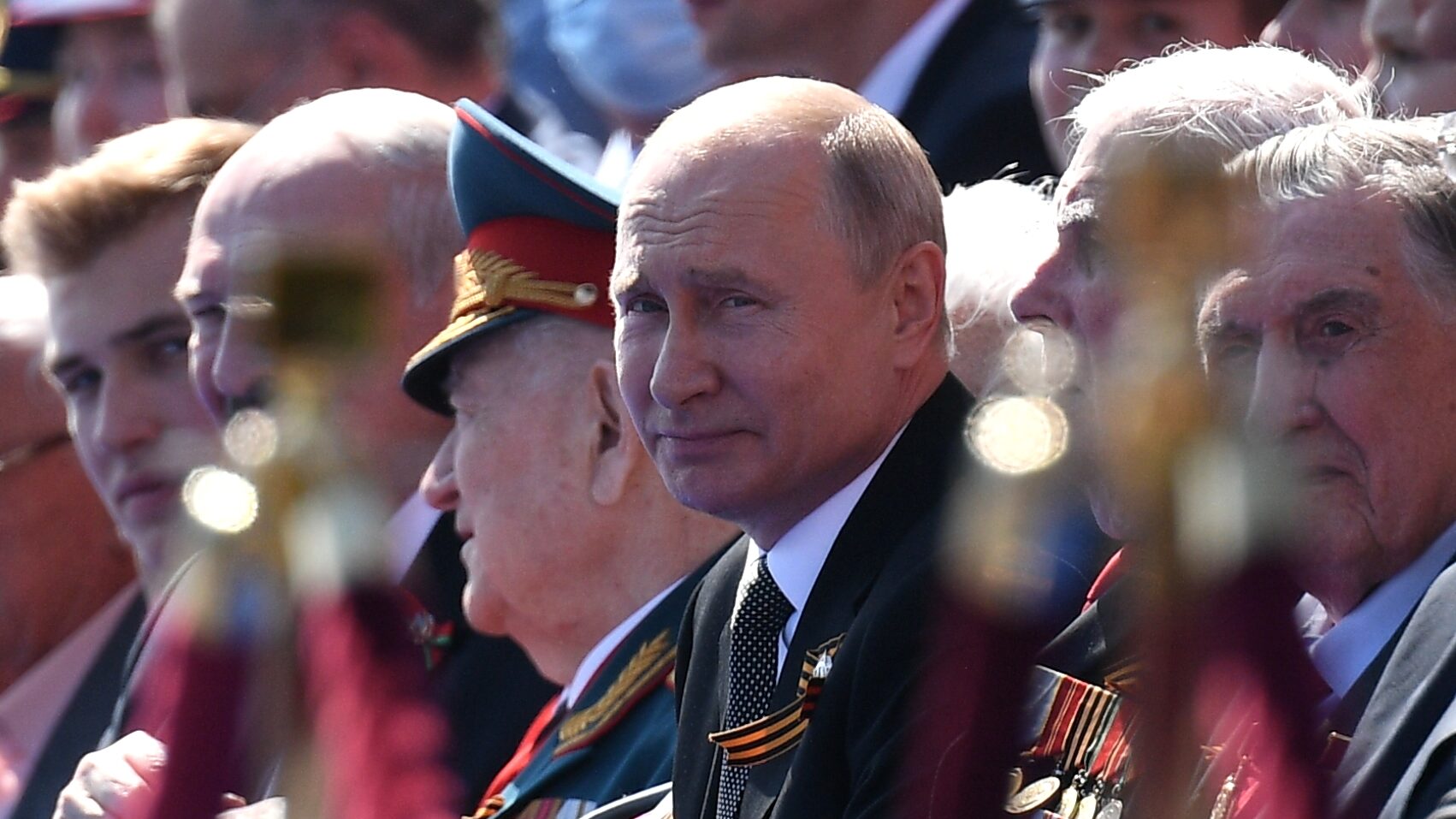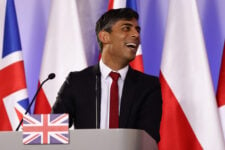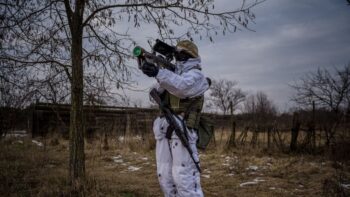
Russian president Vladimir Putin has Europe, and Washington, very nervous right now. (Ramil Sitdikov – Host Photo Agency via Getty Images)
WASHINGTON: President Joe Biden will use a Tuesday call with Russian President Vladimir Putin to warn of “very real costs” should Russia further invade Ukraine — but costs unlikely to come in the form of direct US military response, a senior administration official suggested today.
“I don’t want to use a public press call to talk about the particular sensitive challenges that President Biden will lay out for President Putin, but I would say that the United States is not seeking to end up in a circumstance in which the focus of our countermeasures is the direct use of American military force,” the official told reporters. Rather, the US would pursue “a combination of support for the Ukrainian military, strong economic countermeasures [and] a substantial increase in support and capabilities to our NATO allies to ensure they remain safe.”
That support could include rotating US troops to eastern NATO nations should they request it, which the official said would be an expansion the 2014 European Reassurance Initiative, itself a response to Russia’s invasion of Crimea.
“You can anticipate that in the event of an invasion, the need to reassure allies would be real,” the official said. “The US would be prepared to do that.”
The official said Biden will make it clear to Putin that the US “does not seek conflict,” and that there remains a diplomatic way out of the current situation.
While the mass troop buildup near Ukraine has top US officials on edge, the official said it remains unclear if Putin has actually decided to invade. “Diplomacy is the responsible way to resolve this crisis,” the official said.
During Saturday’s Reagan National Defense Forum, current and former senior US defense officials voiced their growing worry about the Russian buildup amidst reports that US intelligence believes Russia is planning a large offensive as early as next year.
“They’ve invaded before, and as we look at the numbers of forces that are in the border region, as we look at some of the things that are occurring in the information space, as we look at what’s going on in the cyber domain, it really raises our concern,” Defense Secretary Lloyd Austin said.
As to what to do about it, former defense secretaries Leon Panetta (2011-2013) and Mark Esper (2019-2020) said the US must send Putin a strong message.
“The only key right now is strong deterrence, and the way you establish deterrence is you say to Mr. Putin, ‘If you do this, this is what we’re going to do to you,’” Panetta said. “And lay it out, particularly in regards to cyber and the capability of cyber. I think we have to lay out that he has to pay a price.”
Esper suggested the US increase its support for the Ukrainian military with new missiles, but more importantly, he said the answer had to come from beyond just America.
“It can’t just be the United States helping Ukraine. We should lead, but we should look at all our NATO allies and get their participation as well,” Esper said. “We have to stand up to Putin. We cannot allow him to pull this off. If he does, it will not sate his appetite.”






















